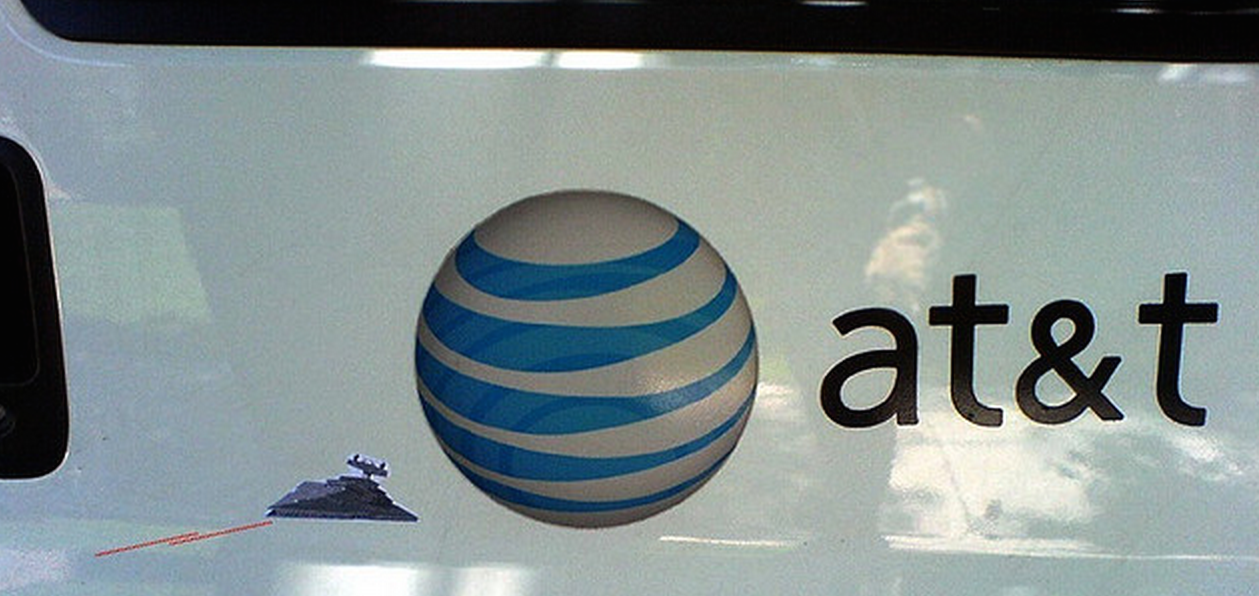FCC Not Scared Of AT&T’s Plan To Sue Over New Neutrality Rules
For those still unclear about this whole reclassification thing, here’s the basic info. In a time when the Internet was still viewed as a non-essential add-on — something you used for going into chat rooms or sending e-mails to friends — the FCC shortsightedly classified it as a lightly regulated “information service,” as defined by the Communications Act.
But Wheeler is proposing that broadband be reclassified as a “common carrier,” effectively treating broadband as a utility, much in the way that phone service is.
The telecom and cable industries are attempting to frighten consumers into thinking that this means a government takeover of broadband. In a recent op-ed piece, former FCC Chair (and current frontman for the cable industry) Michael Powell repeatedly used terms like “government-run networks” to mischaracterize the situation.
The purpose of reclassification is to prevent Internet service providers from unfairly blocking, throttling or prioritizing data based on who pays them the most money.
But since there is a lot of money to be made in such deals — especially in wireless broadband — you can expect lawsuits from the likes of AT&T and Verizon.
AT&T has already outlined its planned legal argument, claiming that the very things that Wheeler and neutrality advocates are trying to stop also prevent them from stopping it.
See, the Communications Act defines an information service as one that offers the “capability for generating, acquiring, storing, transforming, processing, retrieving, utilizing, or making available information via telecommunications, and includes electronic publishing, but does not include any use of any such capability for the management, control, or operation of a telecommunications system or the management of a telecommunications service.”
AT&T contends that if ISPs were merely delivery systems that didn’t mess with the data they handle, then maybe the FCC might have a case. But the very prioritizing and blocking they want to cash in on would require the FCC to view an ISP as an information service.
“The particular net neutrality rules that the FCC is considering, such as prohibitions on blocking and paid prioritization, relate largely to the functions of routers that fall on the ISP side of the line,” writes the Death Star, “and thus the ‘information service’ component of Internet access service (assuming, incorrectly, that Internet access service can, and should be, segregated into separate information and telecommunications service components).”
According to Ars Technica, FCC officials don’t believe this argument holds up, as the same law defines “telecommunications” as “the transmission,between or among points specified by the user, of information of the user’s choosing, without change in the form or content of the information as sent and received.”
In the FCC’s view, the fact that ISPs charge money to receive and transmit data means they are providing a telecommunications service.
Supporters of reclassification say that AT&T is ignoring the exception in the definition of “information service” for services involved in the “management, control, or operation of a telecommunications system or the management of a telecommunications service.”
“Either an information service is an integral part of offering telecommunications or it isn’t,” John Bergmayer, senior staff attorney at Public Knowledge, tells Ars. “If it is, it’s considered to be part of the telecom service… If the information service is not part of the telecom service and is just this other thing, hey, great… That doesn’t mean you get to use it to interfere with the nondiscriminatory telecommunications service.”
Want more consumer news? Visit our parent organization, Consumer Reports, for the latest on scams, recalls, and other consumer issues.


